Rudy Giuliani's man in Ukraine and the origins of the Biden conspiracy theory
KIEV, Ukraine — On May 16, Andrii Telizhenko, a 29-year-old former Ukrainian diplomat, bonded with Rudy Giuliani in New York over their shared love of cigars and Ukrainian intrigue. Giuliani, one of President Trump’s personal lawyers, told Telizhenko he was collecting evidence to give to the FBI about the Democratic Party and Ukraine.
Specifically, Giuliani was looking for evidence that during the Obama administration, Vice President Joe Biden had pressured authorities in Kiev to fire a prosecutor to protect Burisma, an energy company that paid Biden’s son as a board member.
At the time, Telizhenko was best known for a controversial claim about the Democratic National Committee colluding with the Ukrainian government. Now he was also prepared to talk about Burisma. “I filled in some of the gaps,” he later told Yahoo News.
What those gaps were that Telizhenko filled in for the former New York mayor is unclear, but within months of that meeting, Giuliani’s allegations about Biden became front and center in the impeachment inquiry into Trump’s alleged effort to leverage foreign aid to pressure Ukrainian authorities to investigate the former vice president and his son Hunter.
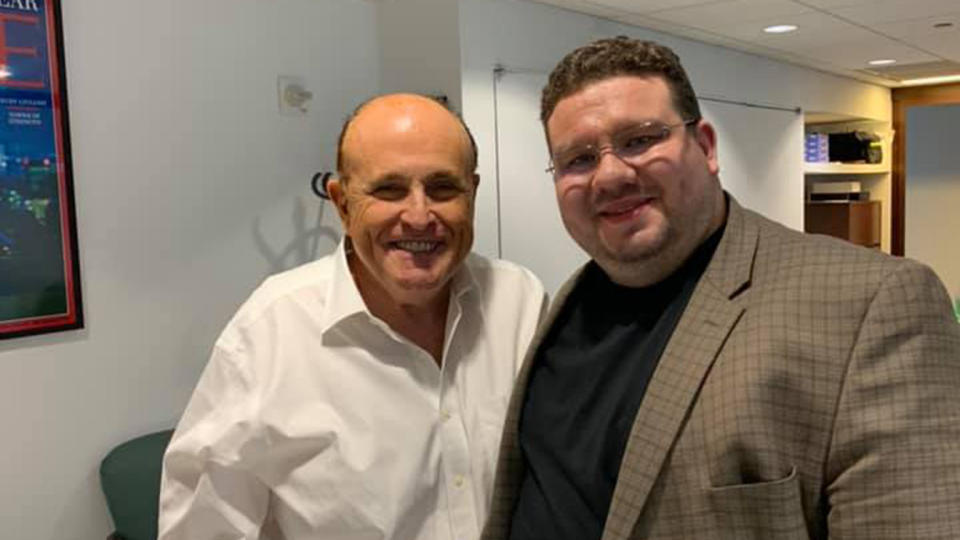
“Telizhenko has direct evidence,” Giuliani told Fox News in early October, not long after the news broke of a whistleblower complaint about political interference in Ukraine’s foreign assistance. Telizhenko, Giuliani continued, was one of “six witnesses who can give direct, admissible evidence of Ukrainian collusion” that spanned everything from the Steele dossier to alleged corruption by Joe Biden.
What Giuliani didn’t disclose — or perhaps didn’t even know — is that Telizhenko himself had previously been paid to work for the company tied to Hunter Biden. While Telizhenko was only one of several Ukrainian sources who fed Giuliani’s investigation that is now at the center of the impeachment inquiry, his role is a window into how foreign actors have been able to insert themselves into America’s polarized political environment.
When Yahoo News first met Telizhenko in early October at a five-star hotel in Kiev, he was a human machine gun of allegations. When Telizhenko speaks, his words come out in a quick burst and with an air of confidence, but what he says in between puffs of smoke from a thick cigar can’t always be confirmed. For example, he says that while working for the Ukrainian government, on at least two occasions he met with Michael Carpenter, a senior official and Ukraine expert in the Obama administration. Carpenter, however, told Yahoo News, “I don’t ever recall meeting him.”
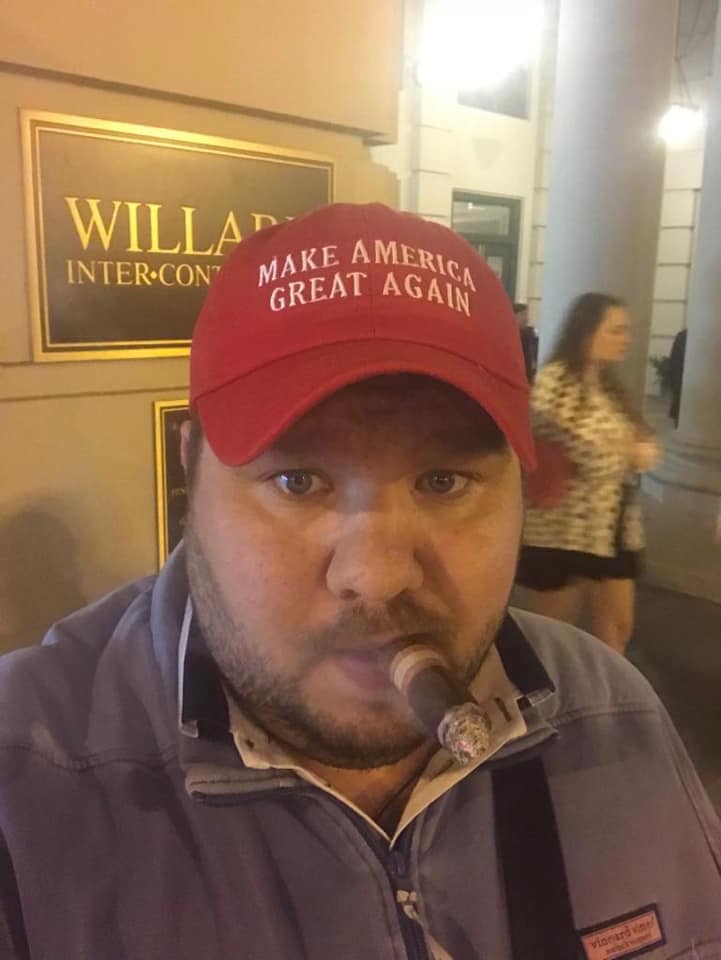
Throughout the claims of collusion, corruption and other wrongdoing that Telizhenko made during discussions with Yahoo News, he could not provide a single document or person that would corroborate anything he said. He said he was restricted by government investigations and bound by nondisclosure contracts, or claimed documents that happened to be somewhere else.
What is known about Telizhenko’s background is based on his own description. He grew up, he says, in Ottawa, Canada, where his father was a diplomat. Telizhenko bounced around the world as a kid, moving from Canada to Egypt to the United States and then back to Ukraine.
In 2014, Telizhenko ended up working for Viktor Shokin, who was viewed as one of Ukraine’s most corrupt prosecutors. In particular, anti-corruption activists were frustrated that Shokin was not investigating Burisma, which was mired in corruption allegations but had high-powered board members, including Hunter Biden, who joined in 2014.
Telizhenko, however, spoke glowingly of Shokin and brushed off allegations of graft. “Of course there was some corruption probably. It’s not for us to judge,” he told Yahoo News.
He says he left Shokin’s office in 2015, because he was bored. Soon Telizhenko, who had no diplomatic experience, landed a job at the Ukrainian Embassy in Washington, D.C.
In the meantime, then-Vice President Biden was pressuring the Ukrainian government to fire Shokin. The American ambassador in Kiev and other top State Department officials made it clear for months that the U.S. couldn’t keep giving aid to Ukraine with Shokin in office, and on March 29, 2016, Shokin was fired.
While Trump supporters have now woven Shokin’s firing into a narrative of Biden helping his son, the opposite, in fact, was true, according to Daria Kaleniuk, an anti-corruption activist in Ukraine. “Joe Biden did not [push to] fire Shokin because Shokin was going to investigate Burisma,” she said. In reality, Shokin had refused to go after Burisma, the company that had put Hunter Biden on its board — a new prosecutor placed the energy firm at greater risk.
Faced with a new Ukrainian prosecutor in the spring of 2016, a time when Hillary Clinton appeared destined for the White House, Burisma turned to Blue Star Strategies, a consulting firm in Washington, run by former members of the Clinton administration. That firm, in turn, looked to Telizhenko, who was now at the embassy in Washington. Telizhenko eventually set up a meeting between Blue Star and Shokin’s replacement.
But it was another meeting Telizhenko was involved with that spring that first drew public interest. He claims Oksana Shulyar, the deputy chief of mission in the Ukranian Embassy, told him to meet with Alexandra Chalupa, a Democratic Party contractor. Chalupa, who also did volunteer work for the Ukrainian Consulate, was warning officials in the Democratic Party about Paul Manafort’s work with pro-Russian officials in Ukraine.
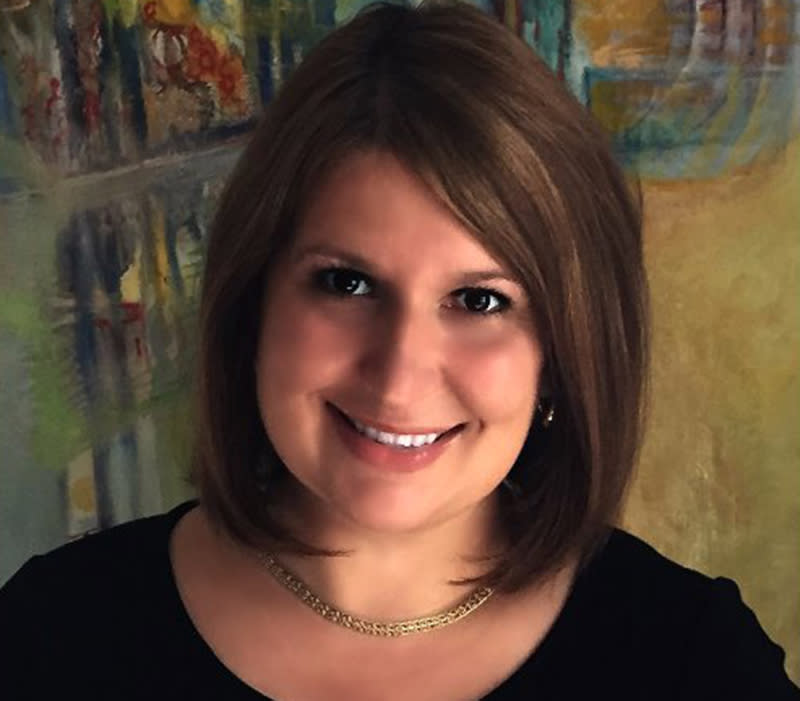
“I am working for the DNC,” Chalupa purportedly told Telizhenko during a meeting at Leopold’s Kafe, an upscale restaurant in Georgetown. “I have this story that I am working on — Trump, Manafort … I want to look for any information, if you can find any dirt on his campaign office that you can give me to take him off the elections,” Chalupa said, according to Telizhenko.
Chalupa denied this account, as did two others who spoke on condition of anonymity because they were not authorized to speak to the media or feared retaliation.
“Telizhenko is someone I never heard of until he was briefly introduced to me as a point of contact for a Ukrainian-American event I was working on,” Chalupa told Yahoo News.
Telizhenko said he confronted Valeriy Chaly, the Ukrainian ambassador to the U.S., after the meeting with Chalupa. Chaly, Telizhenko recounted, said, “‘Just listen to what Oksana tells you.’”
Telizhenko says he tried “to report it back to Kiev,” which angered the ambassador. “There were big tensions, and basically I resigned,” he said.
(Chaly did not respond to repeated requests for comment, and Shulyar declined to comment on the record.)
As Telizhenko prepared to leave the Ukrainian Embassy, he sought a job at Blue Star, the firm representing Burisma. He became a contractor for the company in Kiev, where, he says, he was responsible for all of Blue Star’s work in Ukraine. (Blue Star declined to comment on the record, but a person familiar with Telizhenko’s work there said he had a limited role that included setting up meetings, taking notes and other midlevel tasks.) Telizhenko refused to discuss his work on the record regarding Blue Star and Burisma, citing a confidentiality agreement that he signed.
Still in his mid-20s, Telizhenko appeared on his way to being a savvy consultant who maneuvered between Washington and Kiev. But then something unexpected happened: Donald Trump won the 2016 presidential election.

In December 2016, the month before Trump took office, the New York Times revealed that the intelligence community had concluded that Russia had interfered in the 2016 election to sway the vote in Trump’s favor. That same month, Telizhenko, according to his account, was already in contact with the Trump transition team, who he claims were already looking into Ukrainian “collusion.”
A month later, in a Politico story about Ukrainian efforts to sabotage Trump, Telizhenko aired out his allegations that the embassy had colluded with the Democratic Party. His claim gave Trump and conservative allies a powerful counterpunch, particularly after special counsel Robert Mueller began his investigation into possible collusion between the Russian government and the Trump campaign.
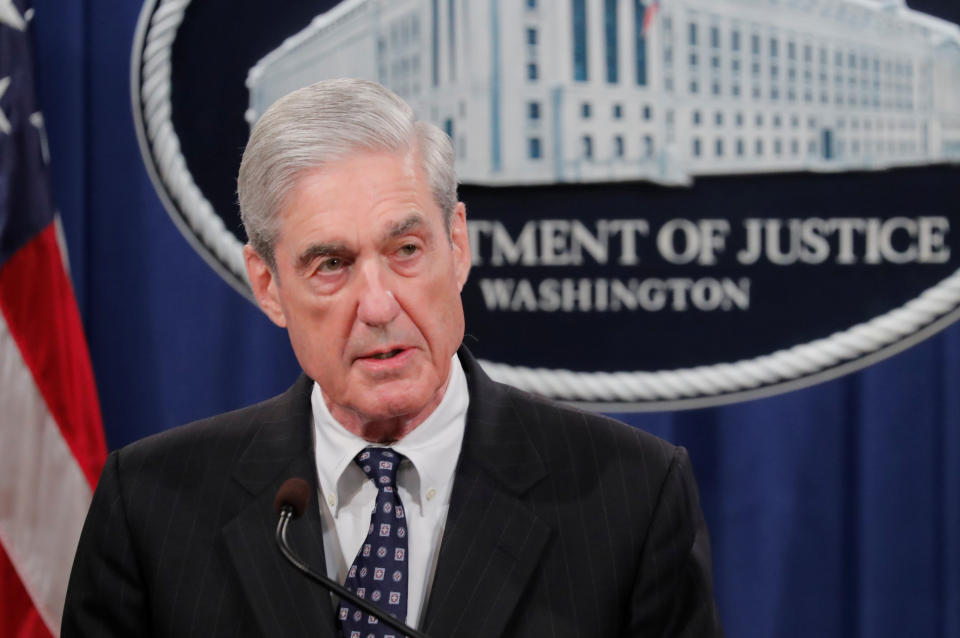
Telizhenko’s story of collusion between the Democrats and Ukraine received media attention, but no substantiation. But Telizhenko now began wearing “MAGA” hats and called himself “Ukraine’s conservative.” He “was very fast in selling himself as someone who has good contracts with the transition team, with the administration and with the Republicans,” said someone who worked with him.
After the Politico story, Telizhenko was dropped by Blue Star, the firm working on behalf of Burisma, but he says he began consulting for Ukrainian politicians and oligarchs. One of his clients, he says, was Pavel Fuks, a Ukrainian oligarch who had previously tried to build a Trump Tower in Moscow, and later paid Giuliani’s firm to perform “municipal services” in a Ukrainian city, according to the Wall Street Journal. Efforts to reach Fuks for comment were not successful.
Giuliani’s newfound business interests in Ukraine quickly overlapped with his political interests as Trump’s personal lawyer. In November 2018, Giuliani says he began to investigate Biden and enlisted Lev Parnas and Igor Fruman, American citizens born in the former Soviet Union, to help him. Parnas and Fruman, who had previously paid Giuliani to work for them, were arrested in October and charged with making illegal campaign donations.
As Trump’s personal lawyer moved forward with what is now described as a “shadow foreign policy” in Ukraine, Telizhenko, who was brandishing his credentials as a MAGA Ukrainian, caught the attention of Giuliani’s inner circle.
On May 15, 2019, Telizhenko says, he was connected to Giuliani through Victoria Toensing, a lawyer and right-wing commentator. They talked on the phone, and Telizhenko agreed to fly to New York the next day to meet with Giuliani. (When asked who covered the costs of this last-minute trip, Telizhenko texted: “i think on my own.”) Toensing did not respond to a request for comment.
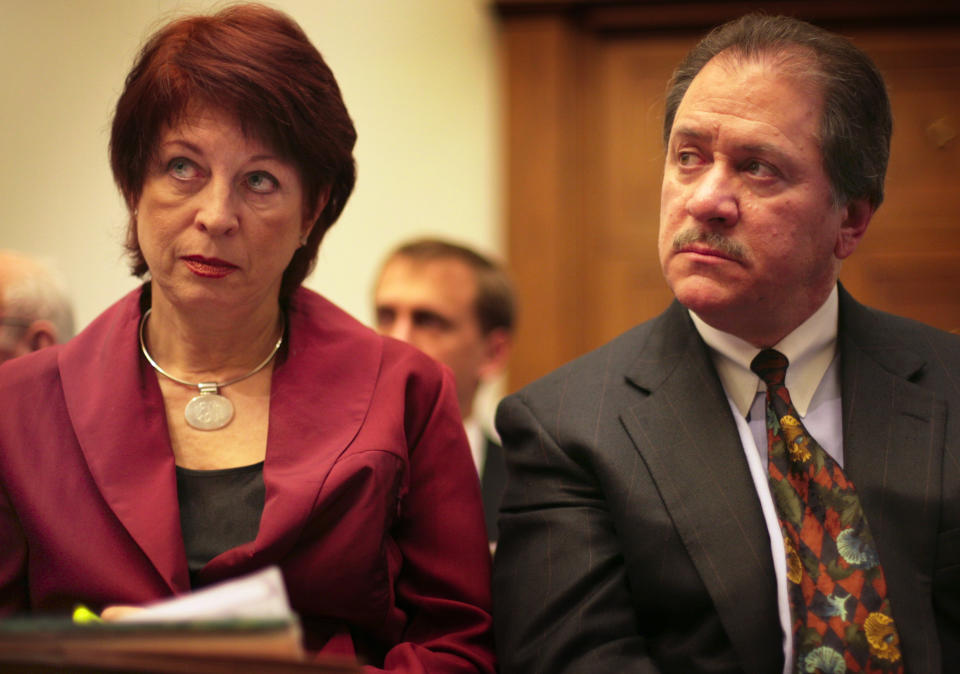
Giuliani’s investigation seemed to be falling apart, however. As the two cigar aficionados chatted in New York, a Bloomberg article reported that Yuri Lutsenko, then Ukraine’s prosecutor general, said the Bidens did nothing wrong, and that Burisma was not the focus of an investigation.
“Rudy said, ‘I have a document from him, a signed document that disproves his statement,’” Telizhenko recounted. “‘When Lutsenko came to me, that’s when I started focusing on this. He gave me the documents, he gave me the evidence,’” Giuliani said, according to Telizhenko.
Giuliani did not respond to multiple requests for comment.
Just a few days after Giuliani and Telizhenko met, Volodymyr Zelensky, a former actor, became president of Ukraine. Trump’s congratulatory call with the new Ukrainian president a few months later, on July 25, set off a series of events that are now at the center of the House-led impeachment probe.
But by late October, as the congressional investigation ramped up, Telizhenko had changed his tone. The House had subpoenaed Giuliani for documents and communications related to meetings with Telizhenko, among others, and more details about Ukrainian oligarchs working with people associated with Giuliani.
Telizhenko seemed nervous when he spoke to Yahoo News. He says he never wanted to influence American politics with his claims.
“I hope it ends good for everybody,” he says, “for Mr. Trump and for Mr. Biden.”
_____
Download the Yahoo News app to customize your experience.
Read more from Yahoo News:
Rebuilding Paradise: A year after the Camp Fire, one couple finds healing in starting over
'We could be blind': Syria pullout may result in loss of intelligence from the Kurds
Republicans think Trump needs a 'quarterback' as impeachment proceedings go public
PHOTOS: For Syrian Kurds, and aid workers – the ‘safe zone’ is not so safe


